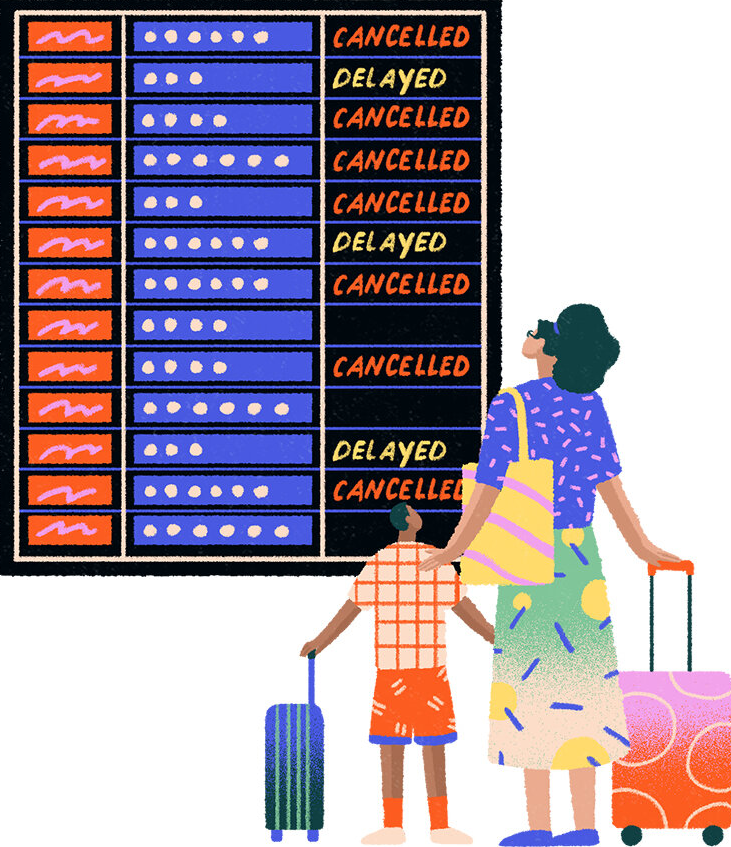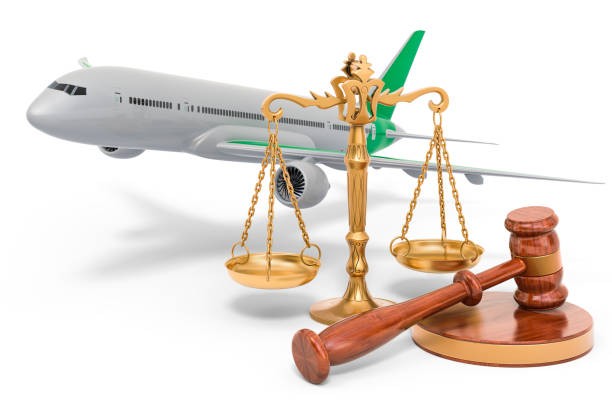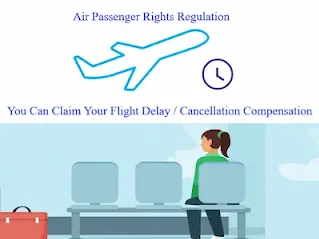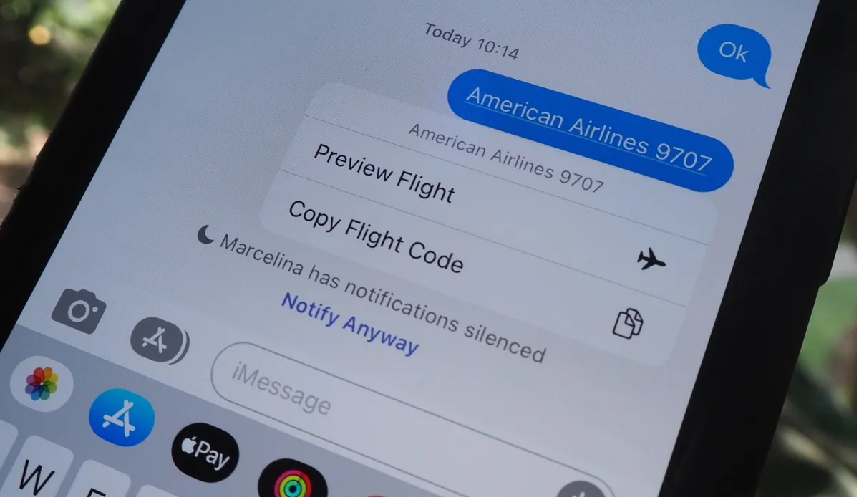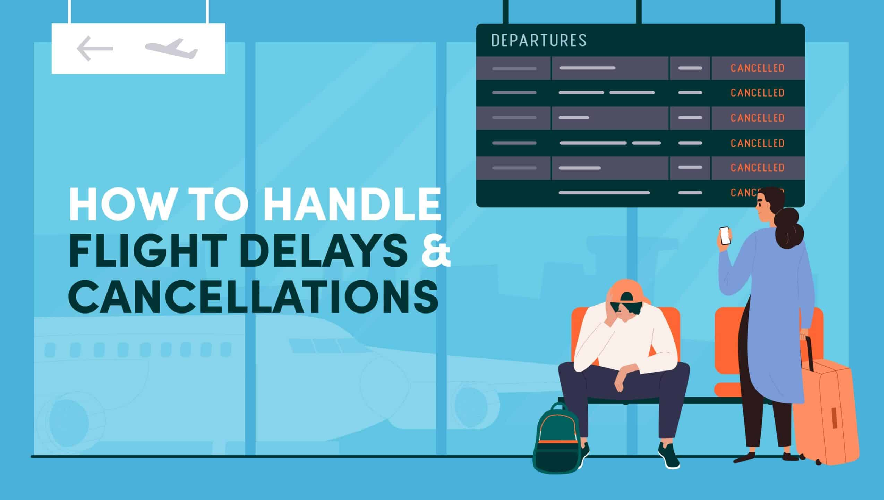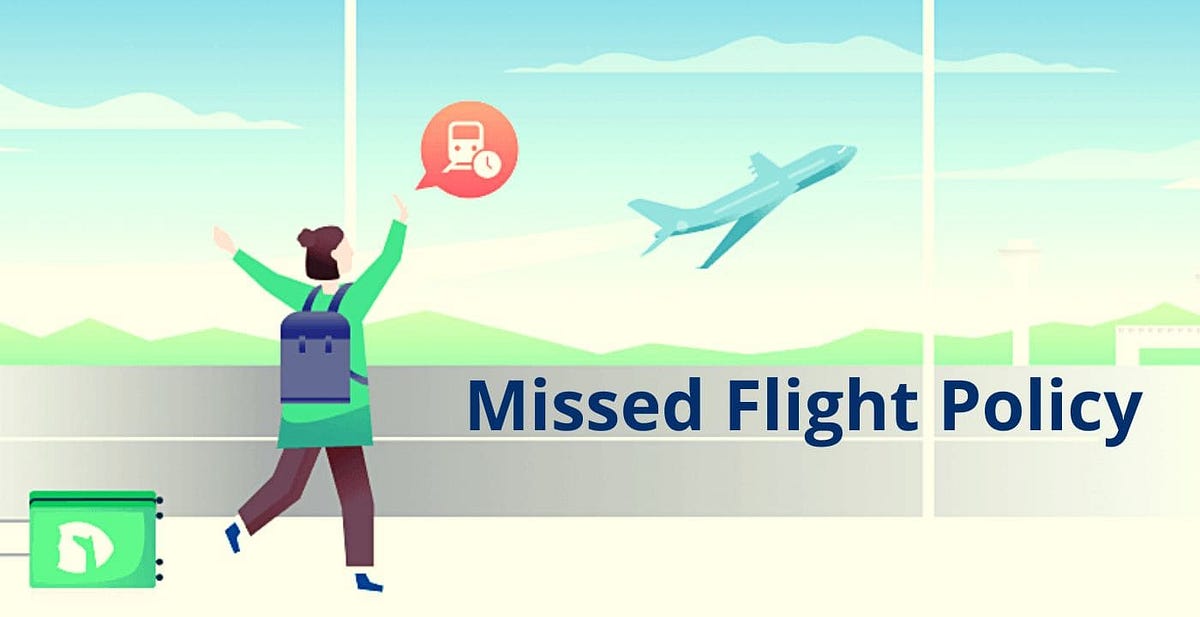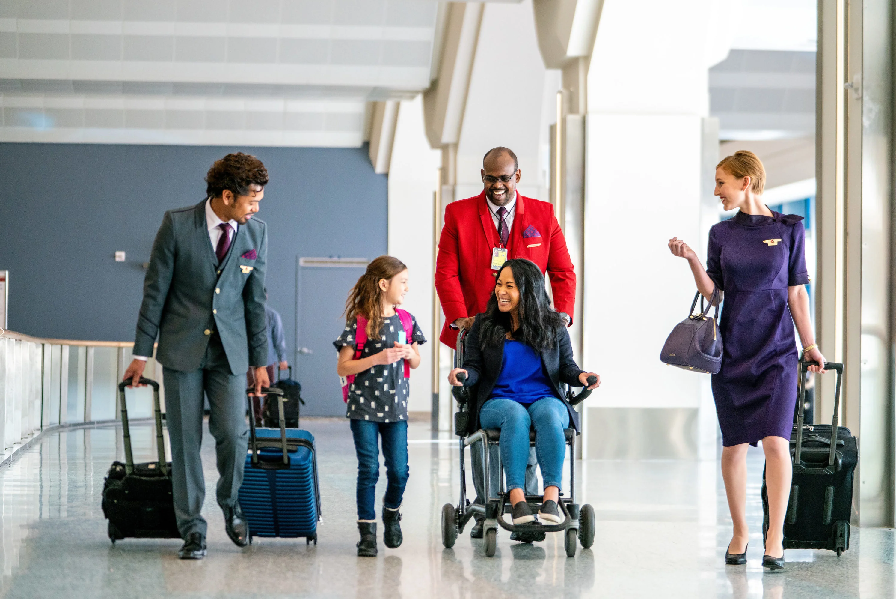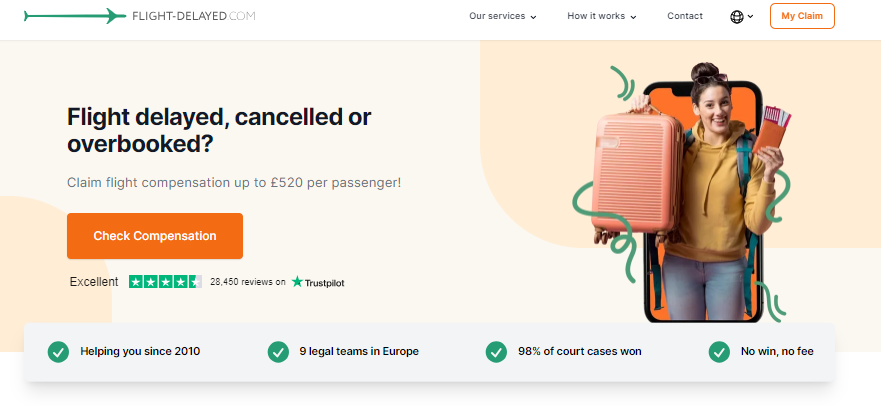Flight delays and cancellations can be a frustrating and stressful experience for any traveler. However, with the right knowledge and preparation, you can overcome these situations more effectively. This article will provide you with the necessary information and strategies to handle flight cancellations.
Understanding Your Rights: Passenger Protections and Compensation
Air passenger rights refer to the legal protections and entitlements that travelers have when facing flight disruptions such as delays, cancellations, or denied boarding. The air passenger rights are:
- The Air Passenger Rights Regulation 2004 (Regulation (EC) No. 261/2004) is an EU law that establishes common rules on compensation and assistance to passengers in the event of flight disruptions. It requires airlines to pay compensation of $250 to $600 depending on the flight distance for delays over 3 hours, cancellations, or denied boarding.
- Airlines must provide refreshments, meals, accommodation, and other assistance where appropriate during disruptions. The regulation applies to flights departing from an EU airport or arriving at an EU airport on an EU airline.
- In the US, there are some regulations related to overbooked flights and tarmac delays, but Europe’s EC 261 law provides more comprehensive protection. 85% of air passengers are unaware of their rights.
- Passengers have the right to be informed about their rights under EC 261. Airlines must display this information at check-in counters. Passengers can check how much compensation they are owed.
- Passengers with reduced mobility or special needs have additional rights, such as priority boarding and free assistance at airports and on board. Airlines must accommodate these passengers unless it is physically impossible or would require changing the aircraft type.
- Airlines are not required to pay compensation for disruptions caused by extraordinary circumstances outside their control, such as bad weather or air traffic control strikes. But they must still provide care and assistance to passengers in these cases.
Stay Informed: Monitoring Your Flight Status and Updates
There are many online tools and apps that allow you to track the real-time status of your flight, including departure and arrival times, delays, and cancellations. These flight tracking services provide up-to-date information on the location and progress of your flight, so you can stay informed about any changes or disruptions.
Websites and apps use different status descriptions like “Scheduled”, “Delayed”, “Departed”, “In Air”, “Landed”, “Arrived”, and “Cancelled” to indicate the current state of your flight.You can check the status of your booking by entering your Passenger Name Record (PNR) or reservation code on the airline’s website or app. Many flight tracking services offer alerts and notifications about changes to your flight status, so you can stay up-to-date even when you’re on the go. If you have any questions, you can also contact the airline’s customer service for the most accurate and up-to-date information. Staying informed about your flight status can help you plan accordingly, avoid unnecessary waiting at the airport, and be prepared for any unexpected challenges.
Immediate Actions: What to Do When Your Flight Is Delayed or Canceled?
When your flight is delayed or canceled, immediately check your airline’s website or app for updates and follow these steps:
- If delayed, ask for refreshments or meals if the delay is over two hours.
- If canceled, ask for an alternate flight or refund.
- If not informed, ask for compensation, and if missing a connecting flight, ask for an alternate flight or compensation.
- If you need to rebook, use your airline’s app or contact their customer service. If you decide not to continue with your travel plans, ask for a full refund. Always keep your travel insurance policy handy as it may cover certain expenses. If not satisfied, file a complaint with the airline or the U.S. Department of Transportation.
Contacting the Airline: Tips for Effective Communication
When contacting the airline about a flight delay or cancellation, be prepared with your flight details and a clear explanation of the issue. Use the airline’s official contact channels, such as their website, app, or phone number, to ensure a prompt response. Be polite, calm, and assertive when communicating, and avoid being aggressive or confrontational. Keep a record of your conversation, including the date, time, and details of what was discussed.
If you’re not satisfied with the response, ask to speak to a supervisor or manager. Additionally, consider sending a follow-up email or message to confirm any agreements or resolutions reached during the conversation. It is very important to be patient and kind when communicating with airline staff, as they are working to assist you under challenging circumstances.
Exploring Alternatives: Rebooking, Rerouting, and Flexible Options
When facing flight disruptions like delays or cancellations, exploring alternatives such as rebooking, rerouting, and flexible options is crucial. Airlines often provide alternative flights or rerouting possibilities, so discuss these options with their customer service.
Some airlines, like Philippine Airlines, are offering unlimited free rebooking for tickets issued during certain time periods, allowing passengers to change their flights without incurring any change fees. Airlines may provide more flexibility by allowing passengers to rebook their flights within a longer time frame, such as 60 days after the original flight date, rather than the standard rebooking window. To accommodate disruptions, airlines may waive or reduce the change fees normally associated with rebooking flights, making it more affordable for passengers to modify their travel plans. Certain fare classes, like Philippine Airlines’ “No-Worry Flight Fare Brand”, come with more flexible rebooking policies, allowing passengers to make changes within the ticket’s validity period. Some airlines may allow passengers to convert the unused value of their tickets into travel credits or vouchers, which can then be used towards a future booking, providing more flexibility. Airlines may offer alternative routing or rerouting possibilities to help passengers reach their destination, even if the original flight path is no longer available due to disruptions.
These flexible rebooking options aim to provide passengers with more choices and the ability to adapt their travel plans when faced with flight delays, cancellations, or other disruptions, without paying significant additional costs. By considering these alternatives and communicating effectively with the airline, you can overcome flight disruptions more effectively and find the most suitable solution for your travel plans.
Navigating the Airport: Finding Assistance and Resources
Navigating the airport can be challenging. Airports offer various assistance and resources to help passengers, especially those with disabilities or special needs. This includes personalized assistance from porters who can guide passengers with individual needs, such as elderly travelers or those with visual impairments. Many airports also provide human assistants who help passengers with disabilities to their gates. Additionally, airports have their own mobile apps that offer real-time flight updates, terminal maps, and information on amenities, which can be incredibly helpful in navigating the airport efficiently. Services like airport lounges also provide a quiet and comfortable space to relax before flights, with complimentary snacks, beverages, Wi-Fi, and charging stations.
Making the Most of Your Time: Strategies for Passing the Wait
When faced with waiting time at the airport, there are several strategies to make the most of your time and pass the wait effectively.
You can explore the airport amenities like shops, restaurants, and lounges to relax and enjoy a meal or drink. Utilize free Wi-Fi to stay connected, catch up on work, or entertain yourself with movies or games on your devices. Consider reading a book, listening to music, or engaging in meditation or relaxation techniques to pass the time peacefully. Some airports offer activities like art exhibits, museums, or designated quiet areas to utilize while waiting for your flight. Planning ahead and making use of these strategies can help you make the most of your time at the airport and turn waiting into a more enjoyable and productive experience.
Keeping Track of Expenses: Documenting Costs for Potential Reimbursement
Keeping track of expenses at airports is important for potential reimbursement. Categorize expenses into different groups, such as by trip type (existing client, sales, corporate event), department, or expense type (travel, accommodation, meals, etc.). This helps with analysis and reimbursement. For travel expenses, include the ticket and boarding card. Store the original documents securely until payment received. Utilize digital tools like expense management software to streamline the process and reduce manual data entry.
Staying Connected: Utilizing Technology and Social Media
Social media can effectively used to enhance customer service for airlines in various ways. Firstly, airlines can utilize social media platforms like Twitter, Facebook, Instagram, and WhatsApp to provide real-time updates, address customer queries, and offer support promptly. By actively engaging with passengers on social media, airlines can build trust, loyalty, and advocacy among customers. Additionally, social media allows airlines to gather valuable feedback, insights, and reviews from passengers, enabling them to understand customer preferences and improve their services accordingly.
Moreover, social media listening tools can help airlines monitor conversations, identify issues, and respond to complaints quickly.
Seeking Compensation: Know Your Rights and How to Claim Them
Seeking compensation from airlines involves knowing your rights and how to claim them effectively. If your flight delayed by more than three hours, you are eligible for compensation under EC Regulation 261/2004, unless due to extraordinary circumstances. To claim, gather flight details, personal information, and documented proof, then contact the airline’s customer service department. In the EU, contact a National Enforcement Body or an ADR scheme. In the US, file a complaint with the Department of Transportation. Once your claim accepted, the airline should provide compensation in cash, travel vouchers, or extra miles.



